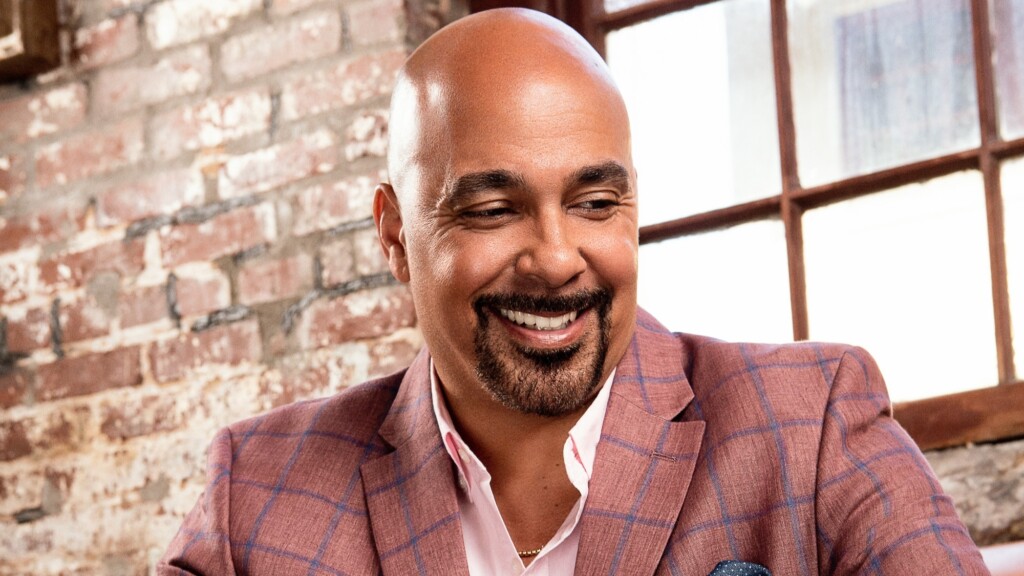
Dr. Patrick Gaham is a native of Long Beach, New York, born to a mother from the rural fields of Verbena, Alabama, and a father from Levittown, New York; two of the most segregated places in America at the time. His mother instilled pride for his southern Black roots and notions of Black empowerment in his northern existence during the 1970s and 80s. He describes himself as a cultural mix of buttery grits and hip-hop. Along with formal education, his cultural appreciation gave him confidence in his Blackness, affection and belief in the possibilities of others. Today, he is a social and public sector leader with a deep faith in human asset building in segregated communities with untapped talent. He believes the talent found in communities facing racial and class divides holds the secret to America’s global competitiveness. This belief is part of his identity.
While studying for his doctorate at Stony Brook University, he became involved with the Long Beach Martin Luther King Center in 1995, a community center founded by southerners in New York that were part of the Great Migration. At the time, the center was in financial distress, and he became part of a volunteer group to save it. Two years later, at the age of 26, he would become its executive director and the center would play an essential role in his young development. More importantly, it gave him an experience of victories and defeats he would later use in larger organizations and movements. Dr. Patrick learned the social, political, and economic roles community-based organizations play in neighborhoods. This experience taught him the value of human capital above all other forms of capital and became his life’s mission.
Over the years, Patrick looked at the immediate needs of our community and housing became a prime focus. When you ask Patrick about why housing is important, he says that “where we live determines a lot about our experiences and opportunities. It determines where we are educated, access to jobs and economic development, and our overall social and cultural environment. Systemically, housing is one of the first forms of wealth development through ownership. At the same time, we use it as our greatest form of segregation. If we are to be truly competitive and nurture all our human talent, we must address the issue of affordable and viable housing.”
While he was the president and CEO of an Urban League affiliate in the Central Carolinas, he co-founded a bank that provided hundreds of African Americans and Latinx families with low-interest rate home and small business loans. As he witnessed families that once struggled to pay rent and become homeowners, his soul rejoiced. He learned that people of all walks of life had common dreams to have their own. It also reaffirmed the role affordable housing must play in the future development of our cities and communities. Affordable housing should be part of any region’s economic development plan. It is one of the greatest lessons community developers can learn.
Over the years, he has led movements and organizations that assisted over 500,000 people with education, workforce development, housing and entrepreneurship. This includes designing regional eviction prevention models, nationally certified workforce programs, a bank for non-banked and underbanked individuals, and justice and equity policy initiatives. However, Patrick would coin the term “Not at-risk, but at-opportunity” to describe young people facing racial and financial discrimination in the early 2000s. It was rewarding because it made people think differently about communities than traditional at-risk models. It defined people and possibilities in the form of assets instead of deficits. He found this most rewarding because systems change starts by changing our mentalities. He noticed many national and regional partners adopted the concept. It was like a movement.

“While racism is still part of our lives, our lack of focus on economic justice is our most significant shortcoming. Today’s racial equity movements, influenced by Dr. Martin Luther King’s generation of heroes and sheroes, have an opportunity to advance the economic and social justice agendas. We need both to live up to the promises of our democracy. I am a practicing advocate that stands on King’s shoulders. As advocates, we are a continuance of “The Force,” and may it be with us all,” says Dr. Graham.
Patrick wants his children to know that throughout his life their father used his intellect and passion for justice and to lift others in and out of season. He wants them to be encouraged by his resilience through victories and dark moments. He would say to them, “refuse to be silent when injustice is around you.” Ultimately, his legacy will depend on their ability to act and the memories of those he has touched.
To connect with Dr. Patrick Graham, visit him on LinkedIn.




